House GOP and District Level Margin of Victory (and its Relation to the Vote on the Budget Deal)
87.18% of the caucus is elected from safe to very safe districts and, therefore, the only real fear that they might have for their jobs would be at the primary stage.
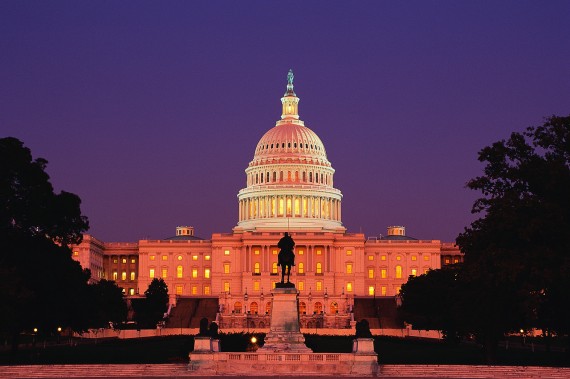 As part of some research for an article I am working on, I was curious as to whether there was a difference between the Republicans who voted in favor of HR 2775 (the CR that allowed the government to re-open and to punt for a couple of months on the debt ceiling). I was interested in the degree to which the Tea Party faction as a coherent group and/or primary threats are influencing legislative behavior. Not only was it clear that Speaker Boehner was not in control of his caucus during the showdown, but the final vote to solve the impasses did not receive a majority of the majority caucus’ votes. Here are some preliminary observations on this topic.
As part of some research for an article I am working on, I was curious as to whether there was a difference between the Republicans who voted in favor of HR 2775 (the CR that allowed the government to re-open and to punt for a couple of months on the debt ceiling). I was interested in the degree to which the Tea Party faction as a coherent group and/or primary threats are influencing legislative behavior. Not only was it clear that Speaker Boehner was not in control of his caucus during the showdown, but the final vote to solve the impasses did not receive a majority of the majority caucus’ votes. Here are some preliminary observations on this topic.
The vote on HR 2775 (which became Public Law 113-46) passed the Senate 81-18, with Democrats voting 52-0, Republicans voting 27-18, and independents (who caucus with the Democrats) voting 2-0 (and 1 R, James Inhofe of OK not voting due to health reasons). The House vote was 285-144, with Democrats 198-0 in favor and Republicans voting 87-144. Due to vacancies and/or other factors, 6 members did not vote.
Now, without a doubt, some number of the 144 Republicans voted against the bill because they genuinely opposed its contents, although the likelihood is also that a lot of those votes were cast to signal folks back home, whether the caster of the ballot believed that “no” was the right vote or not. A key question, to me, is whether or not members of the House GOP caucus who are sending such signals are worried more about the primaries or the general election. Being able to make a clear determination on that matter is difficult, although we can say with absolute certainty that the party’s members are not responding to leadership. That is: we see here the lack of hierarchy in US parties that is more the norm in other countries, because in other settings party leadership can influence a given candidate’s political future. In the US, a given candidate’s future is determined fundamentally by the primary in a bottom-up fashion. It is worth noting that no country in the world uses primaries the way the two main US parties do. At any rate, while it is true that Speaker Boehner won a victory of sorts on October 17, 2013, he didn’t do it because of party discipline.
Now, one thing I was curious about was whether the 144 nay votes came from districts with substantially different margins of victory than the representatives who voted yay. While this information is insufficient to prove what motivated the voting, it seemed likely that candidates who voted nay might be from safer districts than those who voted yay. My reasoning being that candidates from extremely safe Republicans districts would be more fearful of a primary challenge, and therefore need to establish their conservative bona fides by voting no, while those who might be more worried about a general election fight might feel the need to vote yes, since they would fear the general public dissatisfaction over the shutdown more acutely than those in very safe districts. There was, indeed, a difference, although perhaps not all that dramatic: the average margin of victory for the nay seats was 25.9% and the average margin of victory for the yay seats was 20.9%. I am not sure, at this point, what this tells us, but there it is.
What really struck me, although it was not a surprise, was in general how many of the seats were from non-competitive districts. Here’s the breakdown:
The table includes the three seats that were not part of the budget vote (Young in Florida, who died the day after the vote, and vacancies in Alabama and Louisiana, and I also used the special elections in Ohio and SC rather than the November 2012 data to determine the margin of victory for those seats).
At a minimum this clearly illustrates why the House majority could behave as it did regardless of national public approval for the Congress and for the government shutdown/debt ceiling showdown. 87.18% of the caucus is elected from safe to very safe districts and, therefore, the only real fear that they might have for their jobs would be at the primary stage.
Note: I did do the calculations for the Democratic seats, since they all voted yes and my main question was differences in margin of victory for yes v. no voters in the chamber. Clearly, most of those seats would be safe as well.
This is just another bit of information to underscore how uncompetitive our congressional races are. Further, it is worth noting at this point that Republicans won ~1.5 million less votes nationally than did Democrats. All of this speaks to question of the quality of representation and democratic feedback in the national legislature.


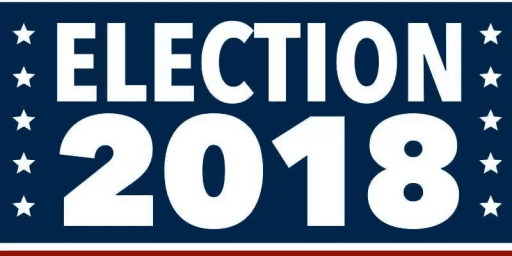
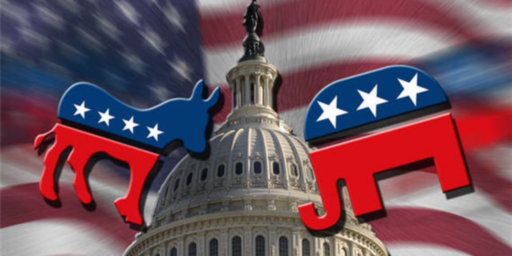
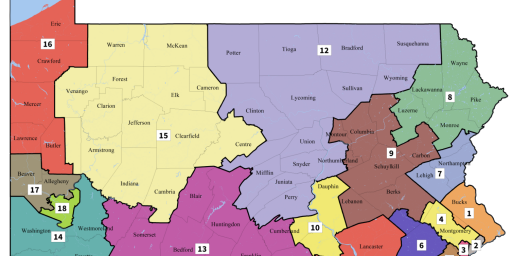
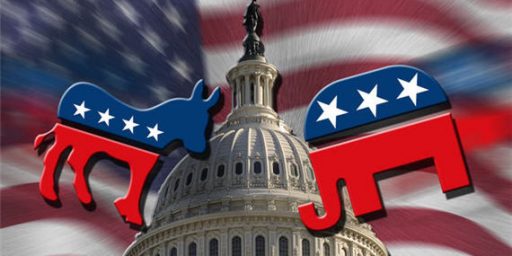
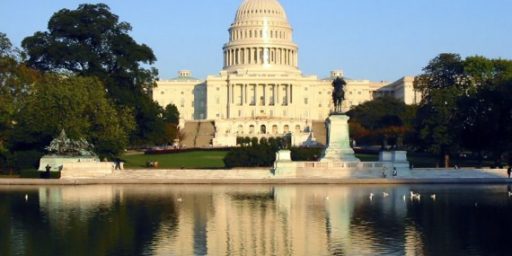
I still find a lot of cognitive dissonance in the voters. Many of those people who complain that Congress is dysfunctional, actually support the party and those legislators who instigated the budget stand off and were quite willing to leverage the fight into a default to achieve their goals.
I actually believe that many of those who express disapproval with Republicans over this episode are upset only with the “loss,” not with the tactics, and just maybe many of them wanted Cruz and the House Republicans to hold out longer.
The next go-round will tell us a lot. I think the anti-ACA bloc will be stronger than ever and the GOP will again be all in on repeal and defunding. Ted Cruz and many House Republicans see blood in the water.
Well, given that the Dems robocalled in Virginia accusing Cuccinelli of supporting Obamacare, it seems like even they see Obamacare as an election threat, at least for Republicans who vote the wrong way.
What stops the left-leaning voters (Democrats, swing) in a Republican-safe district from joining the GOP and voting for the moderate candidates in a primary? Since a Democrat would never win anyway. Or is the population just extremely polarized and each representative accurately reflects sentiment in his/her district?
(curious foreign citizen here)
@JKB:
Hadn’t heard that one before, considering I don’t usually indulge in WND-style crankery, so I had to Google this one.
You realize that this whole “robocall” story comes from a rumor first claimed on a dude’s Facebook page?
Not only should you not believe this story, you should not also draw conclusions from it.
@curious: Various issues come into play, not the least of which being that many states have closed primaries that require votes to register as an R or D.
Beyond that, you are talking about a pretty big collective action problem in a situation (primaries) where only a small percentage of the population tends to participate.
Further, if there was a massive campaign to accomplish this feat, that campaign would also have the effect of mobilizing conservatives.
I think there is a fundamental difference between the most activated D voters and the most activated R voters, at least for the moment: The D voters value and reward people who focus on getting results out of government while the R voters value and reward people who focus on giving “those people” hell and really telling them off. I would go a step farther and say that the R’s are actively hostile to a Republican that focuses on government because it distracts from and complicates what they really want: a simple narrative of good vs. evil, common sense vs. the idiots, the industrious vs. the parasites. Real life is complicated and they don’t want complicated.
On the other hand, neither the D’s nor the R’s have anything resembling a cohesive philosophy. I certainly put myself in this category. I have no strong governing philosophy of any sort. Simply interested in results.
@curious:
As a Dem who votes in GOP primaries ’cause no Dem will ever win, This.
I think we should keep in mind that non-competitive districts are artifacts rather than natural outcomes. As long as district boundaries are drawn by majorities, majorities are guided by party organizations, and neither major political party, reasonably, sees competitive districts as being in their interests I honestly see no way, short of upheaval, that this state of affairs is likely to change.
@curious: In my state (FL) and in many others, there is a party affiliation declaration one makes when registering to vote. I’m a registered Democrat and thus am not allowed a Republican Party ballot in the primaries.
Thank you for asking. It makes for an interesting question of how ‘closed primaries’ evolved and what likely effect ‘open primaries’ have on our governance.
And yes, I have considered registering a Republican in order to vote in ways that bring the craziest possible Repub to the head of the ticket.
Do you have the presidential vote in House races? This is a common way of estimating the partisanship of a district, more or less independent of Representative incumbency effects.
Another approach, which I’ve never seen used: presidential primary breakdown of district vote. This should be available, at least in states that allocate delegates by CD (which I think is mst of them).
It will never happen but I do wonder how it would shake things up to just eliminate the primaries and put all of the candidates on the same ballot at the general.
@Dave Schuler: Actually, it is a combination. You are absolutely correct that in most states the majority party gets to draw the lines. Additionally, however, there are aspects of the geographic distribution of persons and interests that also lead to non-competitive districts. Put another way: our system (and any single member district system) is designed to represent geography, not interests.
@Matthew: Good ideas. I don’t have the data handy, but surely it can be fairly easily acquired.
@Steven L. Taylor:
I keep recalling the Chicago pol who said “one map drawer is worth more than 1,000 precinct workers”.
@Dave Schuler: Indeed. And technology has made it all the easier.
However, even if we go to non-partisan district drawing, this will not solve the the problem of lack of competition (although it certainly could improve things)
Curious,
Some people do do that, but it’s not a mass, coordinated thing. I know some here in CT. CT is a Dem stronghold state. Given the state of the national GOP, there are lots of disaffected moderate Republican leaners here. Some of them end up joining the Dems and pulling rightward a bit (they’re the fabled “fiscally conservative, socially liberal” types). I don’t have numbers, just anecdotes. I work with a guy who has run for local office as a Dem, and I can tell you, he’s absolutely a “DINO.” You’re not going to get frothing wingnut rage out of the guy, and he’s not going to go out of his way to beat up on outgroups, but neither is he much interested in tackling things like income inequality trends. He’ll complain at length about public employee unions and the state income tax. But he does want to fund the schools properly (at least in his town). So, in a more sane world, he’s a Republican.
@Steven L. Taylor
Are there barriers to memberships of convenience other than reluctance to vote against party identification? Eg. registered D and Rs cannot change their registration, voters in a D primary must vote for the D candidate in the general election…
That would be fine, in fact 100% turnout would be best of all.
@JohnMcC: @Rob in CT:
This is why I’m not too concerned about people screeching about “one-party states”: in a healthy democracy less parties = less party discipline, so I figure one party would split into two/three/many parties pretty quick. It seems like there’s so much talk about primarying from the right, surely there are voters willing to primary from the left? Presumably it wouldn’t take that many because leftist + centrist voters vastly outnumber hard-right voters.
@Vast Variety:
For one thing party discipline would be more degraded than ever. Is party-switching in sitting members of the House/Senate allowed?
@curious:
There isn’t much of an effective Left in the USA, though. Sure, if you poll issues you find out the public is pretty sympathetic to liberal aims. But when you ask about self-ID, you get something like 20% liberal, 40% moderate, 40% conservative.
That’s part of the reason you don’t see that many primaries of sitting Dems from the left. Another is the very real fear that it will result in wins for Republicans. Even if you’re a lefty Dem who is pretty pissed at the Democratic Party, you’re going to think twice about helping bring on Republican rule. The example of the 2000 Presidential election is trotted out as needed (with Naderites as whipping boys).
Now, we did have one, sort of, here in CT not too long back. Joe Lieberman, a “hawkish” Democrat who was very pro-Iraq, The Sequel, was primaried by a guy named Ned Lamont. Thing is, Lamont wasn’t some flaming lefty. He was just against the war (IIRC, Lamont was a wealthy businessman from Greenwich), about which a lot of people – myself very much included – were pretty angry. The primary battle was successful (and resulted in me registering as a Dem so I could vote in it), but Lieberman then ran as an independent, promising to caucus with the Dems if he won. One promise at the time was “Joe’s with us on everything but the war,” which turned out to be false, btw. Anyway, the Dem and Rep votes split. Lamont got a majority of Dems, but not enough to overcome a large minority of Dems + a majority of Reps going for Lieberman. So we got Holy Joe, Lover of War and John McCain, for another term. He didn’t run again, and his replacememnt, Chris Murphy, strikes me as to the left of Lamont (though Lamont didn’t have much of a record to really get a sense for him, whereas Murphy was a Representative before he was a Senator). Funny how things work out.
@curious:
Couple answers to your questions:
1. Elected officials can switch parties, though its rare and usually due to a number of external factors.
2. Beyond losing the ability to vote in their preferred parties primaries, there are other issues with switching parties for pragmatic reasons.
First, last I checked, a significant number of Americans are registered as Independents. In part there are deeply cultural reasons for this which are tied to a certain sense of “American-ness.” But there are also pragmatic reasons for this. Highest is that by opting out of the party system you are also going to get less junk mail, political phone calls, emails, and fundraising appeals.
As far as Democrats becoming Republicans and Republicans becoming Democrats, you need to appreciate the fact that for those who *chose* to be a party member, that “choice” has as much to do with culture and tradition as with any pragmatic reasons. This also gets to the reason why – beyond gerrymandering – political parties often control given localities. In part it’s the town/country:liberal/conservative divide. Crossing boundaries, though it might make sense, means upending cultural tradition.